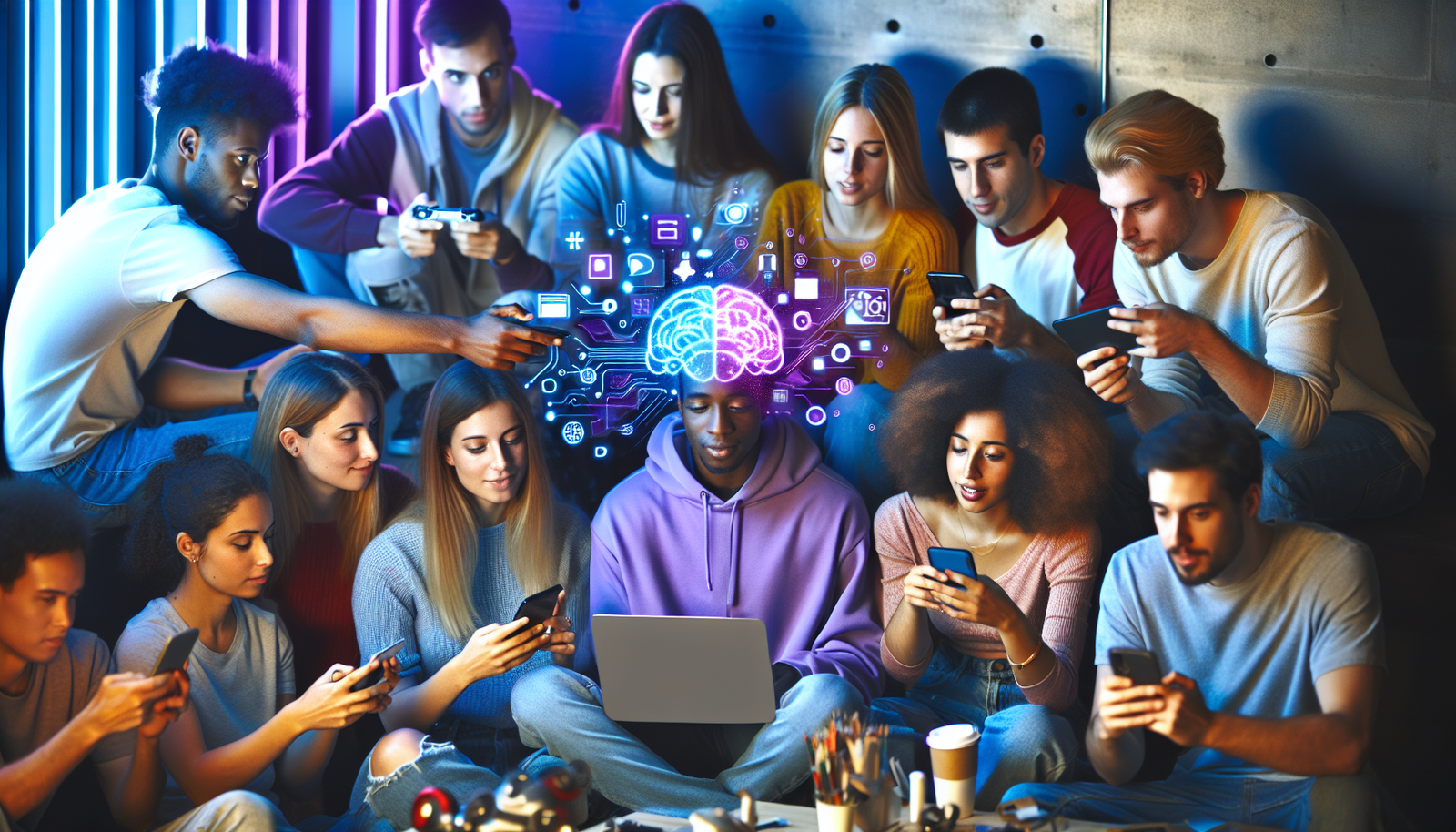Artificial intelligence profoundly shapes the behaviors and interests of generations Y and Z. *Today’s young adults* embrace this innovative technology to optimize their daily actions. *AI tools, such as ChatGPT and others*, transform learning, work, and social interactions by providing unprecedented solutions. This generation, always in search of efficiency, uses AI to enrich its knowledge. *Understanding their choices* and motivations reveals a complex dynamic where AI becomes essential in their daily lives. How does the integration of these tools revolutionize their way of thinking and acting?
The Heaven agency publishes its Born AI study, which focuses on the use of AI by young adults. Here’s an overview!
/ Published on January 13, 2025, at 5:24 PM
The study Born AI, published by the advertising agency Heaven, analyzes the use of artificial intelligence among users aged 18 to 25. The report is based on responses from 251 young people in this age group, adhering to gender and location quotas. Nearly 40% of respondents are high school students or students, while 60% are employees or job seekers.
Adoption Rate and Frequency of Use
The year 2023 marked a generalization of AI adoption. In January 2025, 86% of young people claim to have used at least one AI service in the past six months, up by one point compared to June 2024. The most popular tools remain ChatGPT (76.4% adoption) and My AI from Snapchat (46.8%).
The field of image generators shows a marked evolution, where Midjourney (14.23%) surpasses DALL-E (9.39%), supported by increased accessibility through a web interface. Although the adoption rate remains stable, the frequency of use is increasing. In January 2025, more than 75% of young people use AI every week, with a notable jump in daily use, rising from 21% to 39%.
Varied Uses of AI Among Young People
The search for information emerges as the primary motivation for using artificial intelligence. Nearly 80% of respondents say they use this technology for this reason. ChatGPT, anticipating this trend, launched its Search feature at the end of October 2024. However, this raises questions about the reliability of information.
The main uses of AI cited by young people are:
- Information Search: 89.2%.
- Studies and Work: 83.6%.
- Artistic Creation: (images, texts, music) 74.8%.
- Personalized Recommendations: 65.7%.
- Entertainment: 59.1%.
In the school or professional context, the four main uses of AI include text writing (59.4%), translation (57.8%), information search, and text correction (54.6%).
Centering Online Searches
Specific themes emerge among young people when conducting searches with AI. The five most explored topics include:
- Culture and History: 63% of young people search for this.
- Pop Culture: (TV shows, movies, video games, music) 58%.
- News: 55%.
- Cooking: 54%.
- Health: 51%.
Young people also turn to AI for advice related to outings, travel, or purchasing decisions, demonstrating a growing dependence. One in six respondents even admits to using AI to clarify their political stance.
Perceived Benefits of AI
Respondents were asked to list the benefits they identify in using AI. Nearly 72% highlight a time-saving aspect for their daily tasks, while 71% believe that AI simplifies their research. More than 58% claim that AI-generated content, such as texts, is almost indistinguishable from that produced by humans.
Despite some concerns about the potential replacement of jobs by AI—30% of young people express this fear—more than 60% are positive about their future use. They anticipate using AI more in 2025 than in the previous year.
Frequently Asked Questions
What are the main reasons Y and Z generations use AI?
Young adults primarily use AI for information search, studies, content creation, personalized recommendations, and entertainment activities.
What AI tools are most popular among Y and Z generations?
The most used tools include ChatGPT, My AI from Snapchat, as well as image generators like Midjourney and DALL-E.
How does AI influence productivity among young people?
AI helps young people save time and simplify their daily tasks, making them more efficient in their studies and work.
What types of content do young people create with AI?
They use AI tools to generate texts, images, music, and videos, integrating these creations into school or professional projects.
Do young people fear AI will replace their jobs?
Although there are concerns about this, the majority of young people remain optimistic and think that AI will be a tool to aid employment rather than a substitute.
How often do young people aged 18 to 25 use AI?
The majority of young people use AI regularly, with more than 75% of them reporting that they use it every week, and nearly 39% use it daily.
How do young people use AI for their studies?
They use it for writing texts, translation, information search, and correcting their work, thus enhancing their learning.
What research topics are most popular among young people using AI?
The most popular themes include culture, pop culture, news, cooking, and health.
Can AI help improve the social interactions of young people?
Yes, many young people use AI to get advice on improving their relationships and making decisions in various social interactions.
What is the general attitude of young people towards AI in 2025?
A majority of young people are confident and plan to use AI more in their daily lives compared to 2024.






